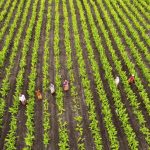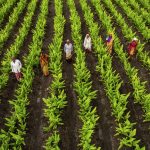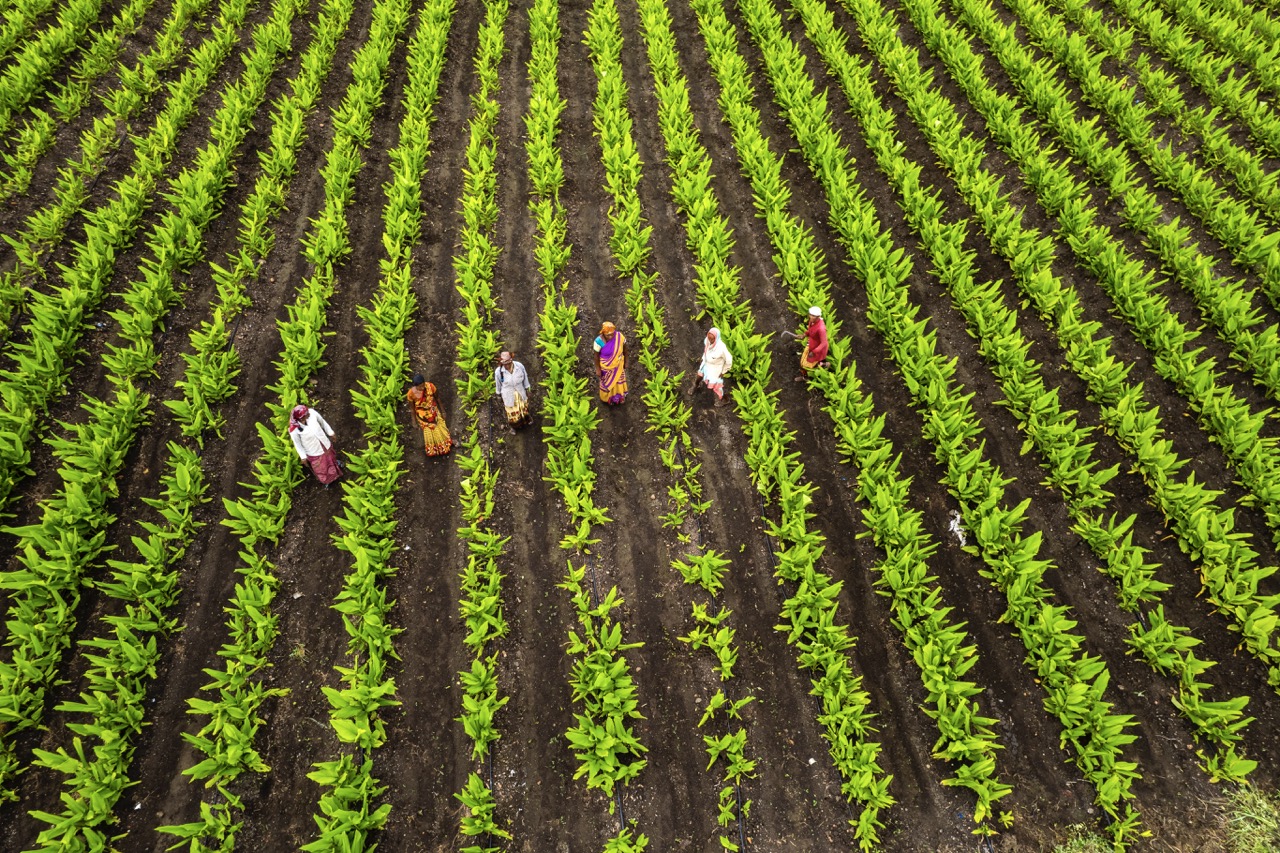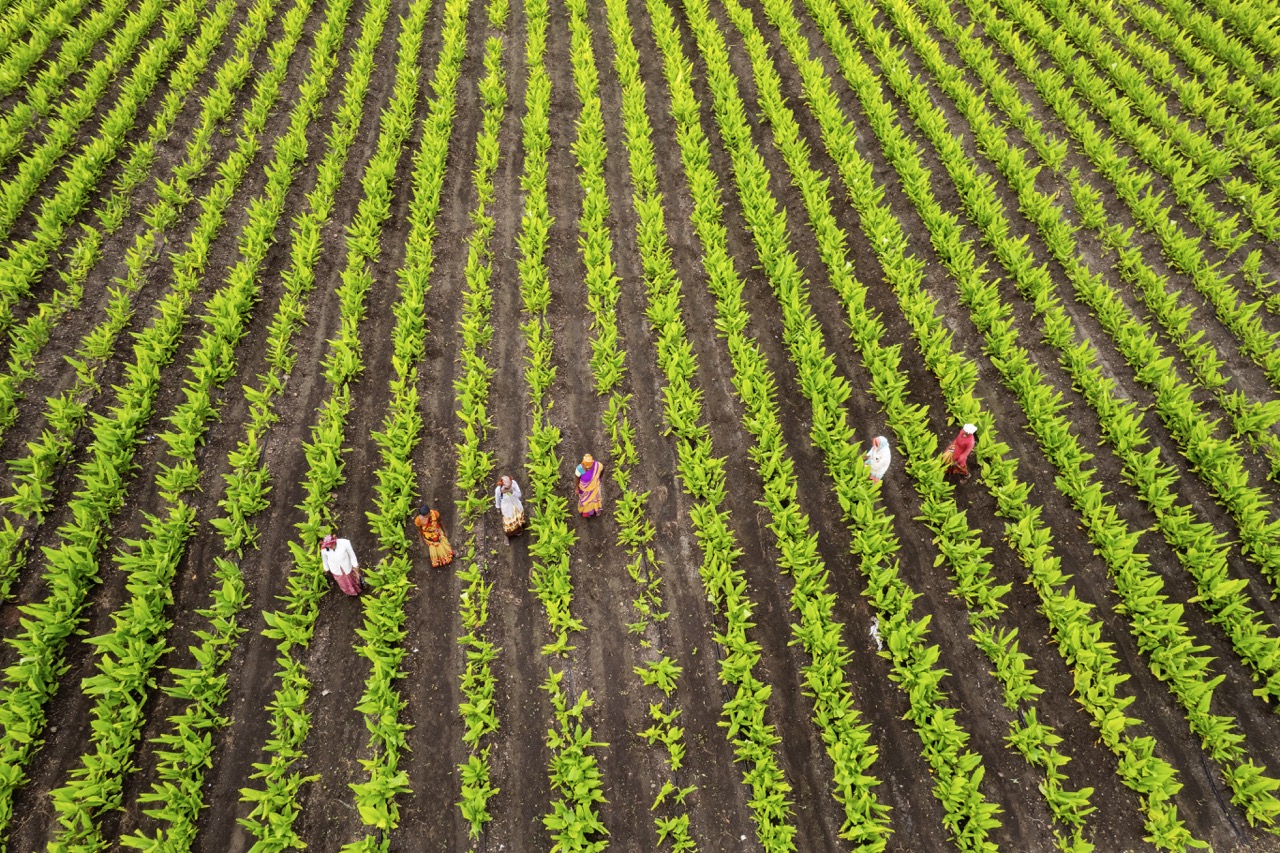Insects have long been perceived as pests in the realm of agriculture, often leading to significant economic losses and crop failures. However, a deeper understanding of their roles reveals that these tiny creatures are integral to the sustainability and productivity of modern farming practices. By recognizing the ecological importance of insects, farmers can harness their potential to enhance crop yields, manage pests naturally, and innovate agricultural practices. This article explores the multifaceted roles of insects in agriculture, emphasizing their benefits and potential as allies in the quest for sustainable food production.
Understanding the Ecological Importance of Insects in Farming
Insects are pivotal players in the ecosystem, contributing to critical functions such as pollination, nutrient cycling, and soil aeration. Pollinators, including bees, butterflies, and beetles, are essential for the reproductive success of many flowering plants, including a vast array of crops. It is estimated that one-third of the food we consume relies on insect pollination, underscoring their crucial role in food security. Without these pollinators, many of the fruits, vegetables, and nuts that form the cornerstone of our diets would suffer drastically in terms of yield and quality.
Moreover, insects contribute to soil health through decomposition. Detritivorous insects, such as earthworms and certain beetles, break down organic matter, returning vital nutrients to the soil. This process enriches the soil, promoting a diverse microbial community that enhances plant health and resilience. Insects also help aerate the soil, improving water infiltration and root penetration, thereby fostering a more robust growing environment for crops. Understanding these ecological functions emphasizes the interconnectedness between insects and agricultural productivity.
Finally, the role of insects extends beyond direct agricultural benefits; they serve as indicators of ecosystem health. The diversity and abundance of insect populations can reflect the condition of local environments, signaling changes in biodiversity and the impacts of climate change or agricultural practices. By monitoring insect populations, farmers and scientists can gain insights into the broader ecological impacts of farming, allowing for the development of more sustainable practices that align agricultural productivity with environmental stewardship.
Beneficial Insects: Nature’s Allies in Crop Production
Among the myriad of insect species, many are beneficial and actively contribute to crop production. Predatory insects, such as ladybugs and lacewings, are natural enemies of aphids and other crop-damaging pests. By keeping pest populations in check, these beneficial insects reduce the reliance on chemical pesticides, which can have harmful effects on the environment and human health. Integrated pest management (IPM) strategies increasingly incorporate beneficial insects, recognizing their value as a natural form of pest control.
Another group of beneficial insects includes pollinators that enhance fruit and seed set in crops. Managed pollination services, particularly from honeybees, have become an essential aspect of modern agriculture, especially in monoculture systems where natural pollinator populations may be insufficient. By fostering habitats for these pollinators—such as wildflower strips and hedgerows—farmers can effectively boost pollinator populations, leading to improved crop yields and quality.
Furthermore, beneficial insects help create a balanced ecosystem on farms. By integrating beneficial species into agricultural systems, farmers can promote biodiversity, which enhances ecosystem resilience. For instance, a diverse insect population can lead to increased soil health and improved pest suppression. Consequently, understanding and promoting beneficial insects is not just about increasing crop yields but also about fostering a sustainable agricultural ecosystem that can withstand the pressures of climate change and resource depletion.
Pest Management: Harnessing Insects for Sustainable Solutions
As the demand for sustainable agriculture continues to rise, the role of insects in pest management has gained significant attention. Traditional pest control methods, often reliant on synthetic pesticides, can lead to resistance, environmental degradation, and health risks. By contrast, leveraging insects in pest management offers eco-friendly alternatives that are increasingly favored by farmers and consumers alike. Biological control tactics, such as introducing predatory or parasitic insects, can effectively manage pest populations while minimizing chemical inputs.
One example of this approach is the use of parasitic wasps, which lay their eggs in or on pest insects like caterpillars and aphids. As the wasp larvae develop, they consume the host insect, effectively reducing pest populations without harming beneficial species. This method not only helps control pests but also maintains biodiversity on the farm, enhancing the resilience of the agricultural system. Moreover, the adoption of pheromone traps can help monitor and manage pest populations by disrupting mating patterns, further reducing the need for chemical pesticides.
In addition to biological control, advanced techniques in insect pest management are emerging, including the development of insecticide-resistant crops and the use of insect pheromones to manipulate pest behavior. These innovations not only promote sustainable practices but also support the agricultural industry’s transition toward regenerative farming. By embracing insects as allies in pest management, farmers can protect their crops while fostering an ecological balance that is critical for long-term agricultural sustainability.
Future Trends: Innovations in Insect-Driven Agriculture
The future of agriculture is increasingly intertwined with innovations that harness the potential of insects. One significant trend is the rise of insect farming for food and feed production, which presents a sustainable alternative to traditional livestock farming. Insects such as crickets and mealworms are high in protein and require significantly less land, water, and feed compared to conventional livestock. This approach not only addresses the growing global demand for protein but also offers a viable solution for waste reduction, as insects can thrive on organic waste materials.
Additionally, advancements in genetic engineering and biotechnology are paving the way for enhanced agricultural practices that leverage insects. Researchers are exploring the potential of genetically modified organisms (GMOs) that can repel pests or attract beneficial insects, thereby improving crop resilience. The integration of technology in the form of precision agriculture also allows for targeted interventions using insect populations to optimize crop production. Such innovations are set to redefine the relationship between insects and agriculture, promoting a more efficient and sustainable agricultural model.
Finally, education and collaboration will play a crucial role in the future of insect-driven agriculture. As awareness about the importance of insects grows, initiatives that promote their conservation and integration into farming practices will gain momentum. Collaborative efforts among farmers, researchers, and policymakers will be pivotal in creating frameworks that prioritize ecological health and sustainable farming practices. By fostering a culture of innovation and ecological stewardship, the agricultural sector can harness the full potential of insects to create a resilient food system for future generations.
Insects are far more than mere pests; they are essential components of sustainable agricultural systems. From their critical roles in pollination and soil health to their potential in natural pest management and innovative farming practices, insects offer invaluable contributions to modern agriculture. As we move forward, embracing the ecological importance of insects will be crucial in developing sustainable practices that ensure food security and environmental health. By recognizing insects as allies, farmers can pave the way for a more resilient and sustainable agricultural landscape, ultimately benefiting both the environment and society as a whole.










